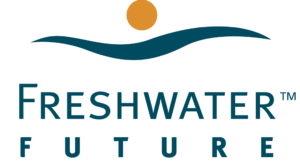Sign the Petition Supporting Muskegon Heights, MI Residents’ Access to Federal Water Assistance
Many families are still struggling economically as a result of the pandemic and rising cost of living. Yet, many communities suspending water shutoffs during the pandemic are resuming shutoffs for residents with overdue bills for water service – Muskegon Heights, MI is one of them. Muskegon Heights is also one of the many Michigan communities that has not opted in and signed a Memorandum of Understanding to accept Low Income Household Water Assistance Program (LIHWAP) funds. As a result, City residents are currently unable to access this essential assistance. LIHWAP offers temporary assistance on overdue water bills paid directly to the utility, and participating households can even receive a full waiver for all water and sewer debt. You can help by signing-on to the petition to urge Muskegon Heights city officials to opt-in to LIHWAP! This action is the first of many as Freshwater Future advocates for LIHWAP access in Michigan’s communities that need it most.
New York’s Largest Landfill Seeks to Expand Instead of Close in 2025 – Water Groups Fight Back
The largest landfill in New York state filed for approval from the Department of Environmental Conservation to expand the size of the facility by 47 acres and to continue operating through 2040. Located in the Finger Lakes region, the landfill accepts waste from New York City and other states, annually producing 75 million gallons of leachate that threatens the safety of drinking water sources. Seneca Lake Guardian is a nonprofit organization and past grantee of Freshwater Future committed to protecting the health of the waters surrounding Seneca Lake and is opposed to the proposed expansion. “[The] landfill is poisoning our water and air, while pumping a putrid odor far and wide and threatening our $3 billion, 60,000 job agritourism industry in the Finger Lakes,” said Yvonne Taylor, vice president of Seneca Lake Guardian.
Wixom Plant Spills Toxic Hexavalent Chromium into Huron River
On Tuesday a manufacturing facility in southeast Michigan released “several thousand gallons” of liquid containing hexavalent chromium into the sewer system, ultimately discharging to the Huron River. Hexavalent chromium, the infamous chemical in Erin Brokovich, is a toxic compound that studies have linked to respiratory diseases including lung cancer, asthma, and bronchitis. A no contact order was issued by state health officials for a large stretch of the Huron River near the spill. Ongoing testing will determine the location and extent of the toxic chromium plume. This same facility was the origin for much of the PFAS contamination in the Huron River that resulted in widespread, years-long fish consumption advisories.
Cleveland Plans $2 Million Project to Address Drinking Water Impacts from Algal Blooms
After Cleveland residents complained about discolored water and water with a metallic taste, the City is planning a $2 million project to raise one of the City’s water intakes in Lake Erie. Decomposing algae at the bottom of the lake can use up most of the oxygen, making the water more acidic and allowing it to absorb metals from the bottom of the lake. As threats to the safety and the quality of drinking water in Lake Erie continue, it points out the urgency to implement solutions to reduce the phosphorus pollution feeding the algal blooms that come primarily from agricultural activities.








